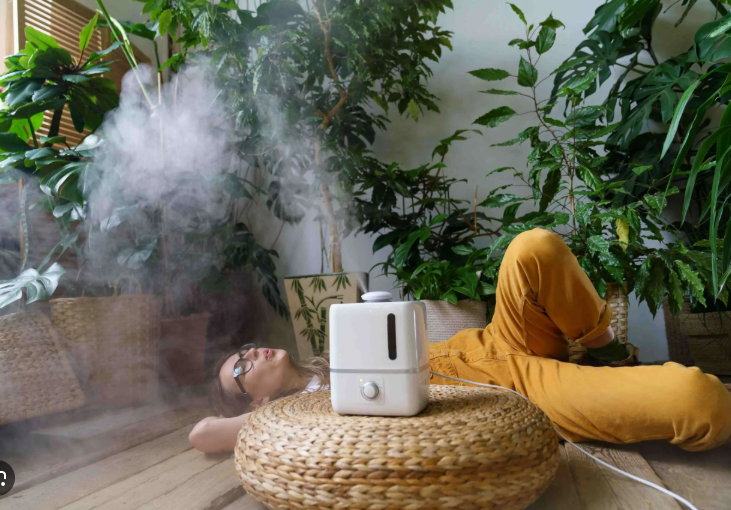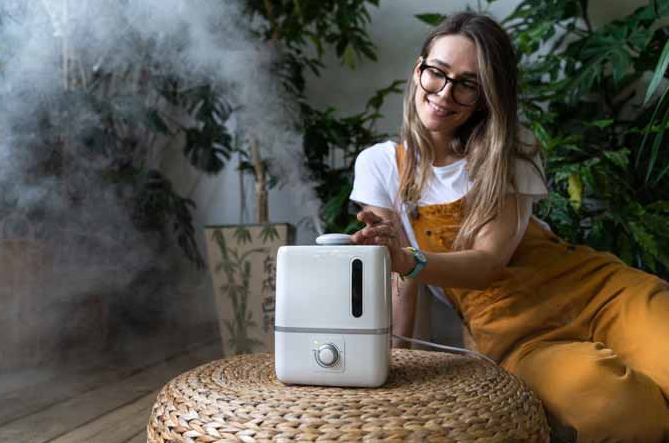Understanding how long do air purifiers last is crucial for ensuring your device continues to deliver clean, healthy air for years to come. Air purifiers are essential tools for improving indoor air quality by removing pollutants, allergens, and odors, but their lifespan depends on factors like build quality, usage, and maintenance. In this detailed guide, we’ll explore the factors that determine how long do air purifiers last, provide tips for extending their lifespan, and offer practical advice on air purifier maintenance, setup, and troubleshooting. Whether you’re using a portable air purifier or a high-end model, this article will help you maximize your device’s longevity.
Why Knowing How Long Do Air Purifiers Last Matters
Air purifiers are an investment in your health and comfort, but like any appliance, they have a finite lifespan. Knowing how long do air purifiers last helps you plan for replacements, budget for maintenance, and ensure consistent air quality. A well-maintained air purifier can last for years, while neglect can lead to premature failure. By mastering air purifier setup, usage, and care, you can extend the life of your device and enjoy cleaner air for longer.
Let’s dive into the factors that influence air purifier longevity, typical lifespans, and actionable air purifier tips to keep your device running efficiently.
Factors That Affect How Long Do Air Purifiers Last
Several factors determine the lifespan of an air purifier. Understanding these can help you make informed decisions about usage and maintenance:
- Build Quality: High-quality air purifiers from reputable brands often use durable components, leading to longer lifespans. Cheaper models may wear out faster due to lower-quality materials.
- Usage Frequency: Running your air purifier 24/7 will cause more wear on the motor and filters compared to occasional use. Continuous operation may reduce the overall lifespan slightly.
- Environmental Conditions: Operating in high-pollution environments, such as homes with pets, smokers, or heavy dust, can strain the purifier and shorten its lifespan if not maintained properly.
- Maintenance Practices: Regular air purifier cleaning and timely filter replacements are critical for longevity. Neglecting maintenance can lead to motor strain and reduced performance.
- Filter Type: The type of filter (e.g., HEPA, activated carbon, or permanent) affects how often maintenance is needed, which indirectly impacts the device’s lifespan.
By addressing these factors, you can significantly extend how long do air purifiers last. For more insights, check out our resources at airpurifierr.com.
Typical Lifespan of Air Purifiers
The lifespan of an air purifier varies depending on the model, brand, and usage. On average, most air purifiers last between 5 and 10 years with proper care. Here’s a breakdown by type:
- Portable Air Purifiers: Compact models, like those used in small rooms or apartments, typically last 5–7 years. Their smaller motors may wear out faster under heavy use.
- Mid-Range Air Purifiers: These units, often designed for medium-sized rooms, can last 7–10 years with consistent maintenance.
- High-End Air Purifiers: Premium models with advanced features and durable components may last 10 years or more, especially with regular care.
- Whole-House Air Purifiers: Integrated into HVAC systems, these units can last 10–15 years, though their filters require frequent replacement.
These estimates assume proper air purifier maintenance and moderate usage. Neglecting filter changes or running the device in harsh conditions can reduce lifespan significantly.

How to Extend the Lifespan of Your Air Purifier
Maximizing how long do air purifiers last requires proactive care and proper usage. Here are essential tips to extend your air purifier’s lifespan:
Regular Filter Maintenance
Filters are the most critical component of an air purifier. Clogged filters force the motor to work harder, leading to wear and tear. Follow these air purifier maintenance tips:
- Replace HEPA filters every 6–12 months, depending on usage and air quality.
- Replace activated carbon filters every 3–6 months to maintain odor removal efficiency.
- Clean washable pre-filters every 1–2 months using a vacuum or mild soap and water.
- Check filter replacement indicators regularly and follow manufacturer guidelines.
Proper Air Purifier Setup
Correct air purifier setup reduces strain on the device:
- Place the purifier in an open area with good airflow, away from walls or furniture.
- Avoid placing the unit near heat sources or in damp environments to prevent damage.
- Use a stable power source and avoid extension cords for air purifier safety.
Routine Cleaning
Regular air purifier cleaning prevents dust buildup and maintains performance:
- Wipe down the exterior with a damp cloth every 2–3 weeks.
- Clean air intake and output vents to ensure unobstructed airflow.
- Inspect the interior for dust or debris during filter changes and clean as needed.
Optimize Usage
Smart usage habits can reduce wear and extend how long do air purifiers last:
- Use auto mode or lower fan speeds for everyday operation to reduce motor strain.
- Run the purifier only when needed in low-pollution environments to conserve energy.
- Keep windows and doors closed to minimize the intake of outdoor pollutants.
For more detailed advice on maintaining your device, visit our clean air guide.
Signs Your Air Purifier Needs Replacement
Even with proper care, air purifiers eventually reach the end of their lifespan. Watch for these signs that it’s time to replace your unit:
- Reduced Performance: If air quality doesn’t improve despite clean or new filters, the motor or internal components may be failing.
- Increased Noise: Persistent loud or unusual noises, even after cleaning and filter replacement, may indicate motor wear.
- Frequent Repairs: If your air purifier requires constant air purifier troubleshooting or repairs, replacement may be more cost-effective.
- Outdated Technology: Older models may lack the efficiency of newer units, making replacement a better option for improved air quality.
If you notice these signs, it may be time to explore new models. Check out our best air purifier guide at airpurifierr.com for recommendations.
Air Purifier Troubleshooting: Common Longevity Issues
Some issues can mimic the end of an air purifier’s lifespan but may be fixable. Here are common problems and solutions for air purifier troubleshooting:
- Weak Airflow: Check for clogged filters or blocked vents. Clean or replace filters and ensure proper placement.
- Unusual Odors: Saturated activated carbon filters may cause odors. Replace the filter and clean the unit thoroughly.
- Unit Won’t Turn On: Verify the power source and check for loose connections. If the issue persists, consult the manufacturer.
- Overheating: Ensure the purifier is in a well-ventilated area and not overworked. Unplug and let it cool before restarting.
Addressing these issues promptly can extend your air purifier’s life and delay replacement.

How to Clean with an Air Purifier to Support Longevity
Using your air purifier during cleaning tasks can reduce strain on the device and filters, indirectly extending how long do air purifiers last. Here’s how to clean with an air purifier effectively:
- Run During Cleaning: Turn on the purifier at a higher fan speed while vacuuming or dusting to capture airborne particles.
- Position Strategically: Place the purifier away from direct debris but close enough to trap particles.
- Clean Filters After Heavy Use: After cleaning sessions, check and clean pre-filters to prevent clogging.
These practices reduce the workload on your air purifier, helping it last longer.
Choosing a Durable Air Purifier
Selecting a high-quality air purifier can maximize how long do air purifiers last. According to the best air purifier guide, consider these features for durability:
- Robust Build: Choose models with high-quality materials and strong warranties.
- Filter Longevity: Opt for purifiers with long-lasting or washable filters to reduce maintenance costs.
- Energy Efficiency: Energy-efficient models reduce motor strain and lower operating costs.
- Portable Air Purifiers: Compact models are ideal for smaller spaces and often have simpler maintenance needs.
Investing in a durable model upfront can save money and extend the lifespan of your air purifier.
Air Purifier Safety: Protecting Your Device
Following air purifier safety practices helps prolong your device’s life:
- Avoid Overloading Outlets: Plug the purifier directly into a wall outlet to prevent electrical issues.
- Keep Dry: Place the unit in a dry area to avoid moisture damage to internal components.
- Follow Manufacturer Guidelines: Adhere to the manual for setup, usage, and maintenance to avoid unnecessary wear.
Conclusion: Maximize How Long Do Air Purifiers Last
Understanding how long do air purifiers last empowers you to get the most out of your device. With proper air purifier setup, regular air purifier maintenance, and smart usage habits, you can extend your purifier’s lifespan to 5–10 years or more. By addressing issues through air purifier troubleshooting and practicing air purifier cleaning, you ensure consistent performance and cleaner air.
Whether you’re using a portable air purifier or a larger model, proactive care is key. For more expert tips on maintaining and choosing the right air purifier, visit airpurifierr.com. Keep your air purifier in top shape and enjoy fresh, healthy air for years to come!